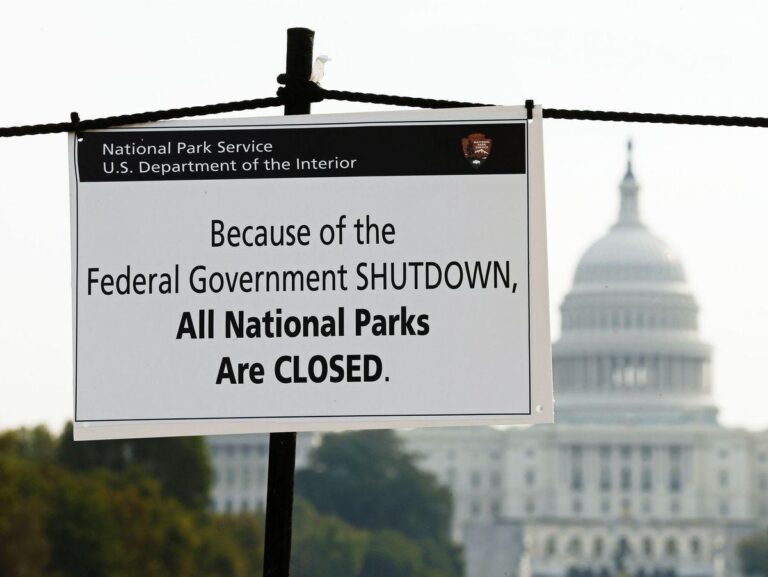Understanding the Federal Government Shutdown: Implications for Texas and Houston Communities
How the Federal Shutdown Disrupts Texas Agencies and Essential Public Services
The recent federal government shutdown has triggered widespread interruptions across Texas, particularly affecting agencies that depend on federal funding and oversight. Programs critical to public health, safety, and infrastructure are experiencing immediate setbacks. Numerous state employees engaged in federally funded projects face furloughs or unpaid leave, causing delays in vital initiatives. For instance, the Texas Department of Transportation has reported postponements in federally backed infrastructure projects, which could slow down road repairs and expansions crucial for the stateŌĆÖs growth.
Several public services that rely heavily on federal assistance are either operating with limited capacity or have temporarily ceased operations. The most impacted sectors include:
- Healthcare: Interruptions in Medicaid reimbursements and vaccine distribution efforts are straining state health agencies.
- Public Safety: Reduced federal law enforcement support and emergency coordination are affecting border security and disaster response capabilities.
- Agriculture and Nutrition: Delays in SNAP benefits and farm subsidy payments are creating hardships for many Texas families and farmers.
| Agency or Service | Anticipated Effect | Expected Duration |
|---|---|---|
| Texas Department of Transportation | Project postponements, workforce reductions | Immediate to 3 months |
| Texas Health and Human Services | Temporary suspension of federal program payments | 2 weeks to 1 month |
| Texas Public Safety Agencies | Limited federal collaboration | Duration of shutdown |
Economic Ripple Effects in Houston and Neighboring Areas
The shutdownŌĆÖs economic fallout is acutely felt in Houston and its surrounding communities. Federal employees and contractors face furloughs or delayed wages, which reduces consumer spending and places additional pressure on local businesses dependent on government-related income. Key federal services, including visa processing and infrastructure development, have slowed or halted, stalling economic momentum and increasing job market uncertainty.
Different industries are experiencing unique challenges, such as:
- Energy and Port Operations: Delays in permits and inspections at major hubs like the Port of Houston risk creating supply chain disruptions and escalating costs.
- Healthcare: Interruptions in federal healthcare funding threaten services for vulnerable groups, including veterans and low-income residents.
- Small Business Sector: Suspension of federal loan and grant programs limits growth opportunities for entrepreneurs during an already volatile economic period.
| Industry | Impact | Duration |
|---|---|---|
| Energy | Permit processing delays | Indefinite |
| Healthcare | Funding interruptions | Short-term |
| Small Businesses | Freeze on federal financial assistance | Until government reopens |
Managing Healthcare and Social Services Amid Federal Funding Interruptions
Texans reliant on federally funded healthcare and social programs face growing uncertainty as the shutdown continues. Programs such as Medicaid and the ChildrenŌĆÖs Health Insurance Program (CHIP) are experiencing delays in application processing and claims, disproportionately affecting low-income families, seniors, and individuals dependent on government-supported care. Healthcare providers anticipate budget shortfalls that may reduce service availability or operating hours.
Social safety net programs addressing food security, housing assistance, and employment support are also under strain. Community organizations report increased demand as residents seek alternative aid, though federal funding remains uncertain. Texans are advised to:
- Regularly monitor updates from local health and social service agencies.
- Investigate state-funded alternatives that may continue despite federal funding gaps.
- Contact providers early to understand any changes in service delivery.
| Program | Effect | Estimated Delay |
|---|---|---|
| Medicaid | Slowed application processing | 2 to 4 weeks |
| SNAP (Food Assistance) | Potential delays in benefit distribution | 1 to 3 weeks |
| Section 8 Housing | New applications temporarily halted | Indefinite |
Practical Steps for Texans to Access Support and Prepare
Residents across Texas should proactively safeguard their access to critical services during the federal shutdown. It is essential to verify the status of benefits such as Social Security, Veterans Affairs programs, and other federal aid. Staying informed through official state portals and trusted local news sources will provide timely updates on service availability and government reopening plans. Financial preparedness, including setting aside emergency funds, can help mitigate the impact of delayed payments.
Several state and community resources remain operational or have contingency measures to assist Texans during this period. These include nonprofits, local government offices, and charitable organizations offering support with food, healthcare, and housing. Below is a list of key contacts for assistance:
| Resource | Contact Information | Available Services |
|---|---|---|
| Texas Health and Human Services | 1-877-541-7905 | Food assistance, Medicaid, TANF |
| Houston Food Bank | 713-223-3700 | Emergency food distribution |
| Texas Department of Veterans Affairs | 512-463-5415 | Veteran benefits and support |
| Local Legal Aid Offices | Varies by county | Housing and employment legal assistance |
Remaining proactive and utilizing these resources can help Texans navigate the shutdown with greater stability and reduced disruption.
Summary: Navigating the ShutdownŌĆÖs Challenges in Texas
The ongoing federal government shutdown presents a complex array of challenges for Texans, affecting public services, economic stability, and social support systems. Delays in federal funding and reduced agency operations highlight the extensive consequences of political deadlock in Washington. As negotiations continue, Texas residents and officials remain watchful, hoping for a prompt resolution that restores essential government functions and stabilizes critical programs. Local media outlets, including Houston Public Media, will keep the public informed on developments and their implications for the state.




